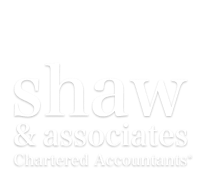Canadian Mortgage Rules Have Changed
July 21st, 2020
Posted in: Economy & Government

On July 1st, 2020, changes to the way Canadians qualify for mortgages with the Canadian Mortgage Housing Corporation (CMHC) took effect. The new mortgage rules will raise the bar for Canadians to qualify for mortgages, with an eye towards reducing the precarious debt load Canadians are carrying (we are some of the most heavily in debt people in the world), and also introducing more stability into the housing market.
This quick video gives you an idea of what mortgage rules changes have taken effect as of July 1st, 2020. -
Overview Of The New Rules
Here is an excellent overview of the new mortgage rules from Moneysense. From the article:
Change 1: Less debt as a percentage of gross income
Old rule: Buyers with good credit scores and reliable income could spend up to 39% of their gross income on housing (including their mortgage, property tax, heating bill and half of condo fees); and could borrow up to 44% of gross income once credit card, car payments and other loans are included.
New rule: All buyers will be limited to spending up to 35% of their gross income on housing, and can only borrow up to 42% of gross income once other loans are included.
Change 2: New minimum credit score established
Old rule: Under the old rules, in order to qualify for an insured mortgage at least one borrower (or their guarantor) needed a minimum credit score of 600, which is only “fair” credit according to standard guidelines.
New rule: The new rules raise the minimum to 680—meaning buyers will need a “good” credit score.
Change 3: No more borrowed down payments
Old rule: In order to make up the minimum down payment, a homebuyer could use unsecured personal loans, unsecured lines of credit and even credit cards. The minimum downpayment is 5% for houses valued up to $500,000, and 10% of the amount over $500,000, up to $1 million.
New rule: Borrowers must provide the down payment “from their own resources,” CMHC says. These can include savings; equity from the sale of a property; a non-repayable financial gift from a relative; funds borrowed from other, liquid financial assets or against other real property; or a government grant.
The “mortgage stress test” will remain unchanged. The stress test requires lenders to confirm that a borrower can still make their monthly mortgage payment even if interest rates rise.
Let Shaw & Associates Help You
Shaw & Associates can help you take a look at your financial picture, how you stand in relation to qualifying for a mortgage, and how to get to where you want to go.
Contact Shaw & Associates Chartered Accountants for accounting help you can count on. One complimentary meeting with us will put you and your business on a more profitable and positive path.

